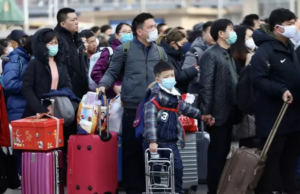
State Drug Administration: antigen testing may be false-negative or false-positive situation
At the routine press conference of the State Administration of Market Regulation, Huang Guo, deputy director of the State Drug Administration, said that at present, antigen testing is one of the current common testing methods, the State Drug Administration has carried out three rounds of full-coverage special sampling of antigen testing reagents, no substandard products were found, and the overall quality is stable. So far, the State Drug Administration has approved 42 antigen detection reagents, with a daily output of about 60 million copies. Recently, the State Drug Administration held a video scheduling meeting to strengthen the quality and safety supervision of the new coronavirus antigen detection reagents, proposed to continue to strengthen the quality supervision and sampling of the new coronavirus antigen detection reagents, drug regulatory authorities at all levels to the registrants under the jurisdiction of the new coronavirus detection reagents produced by the entrusted manufacturers to carry out full-coverage sampling. Once found that there are violations, can not guarantee the safety and effectiveness of the product, the company should be ordered to immediately suspend production, recall the product in question and effective disposal; serious violations, the medical device production license shall be revoked in accordance with the law, and the relevant responsible persons shall be punished in accordance with the law. The State Drug Administration also mentioned that, due to the limitations of the methodology itself, there will be “false negatives” or “false positives” in the process of antigen detection. “False negative” refers to the original infection, the results did not show positive; “false positive” refers to the original no infection, the results show positive. Huang Guo introduced, in the acute infection period, the body of the virus released a large number of antigenic protein, antigen reagent detection rate is generally higher. But for asymptomatic infection or in the incubation period of the disease, because the amount of virus in the body is below the detection limit, may lead to undetectable or low detection rate. In addition, the degree of standardization of the sampling and testing process can significantly affect the accuracy of the test results. Experts recommend that testing with antigen detection reagents be considered for patients who present with symptoms of new coronavirus infection within 5 days.


Average Rating